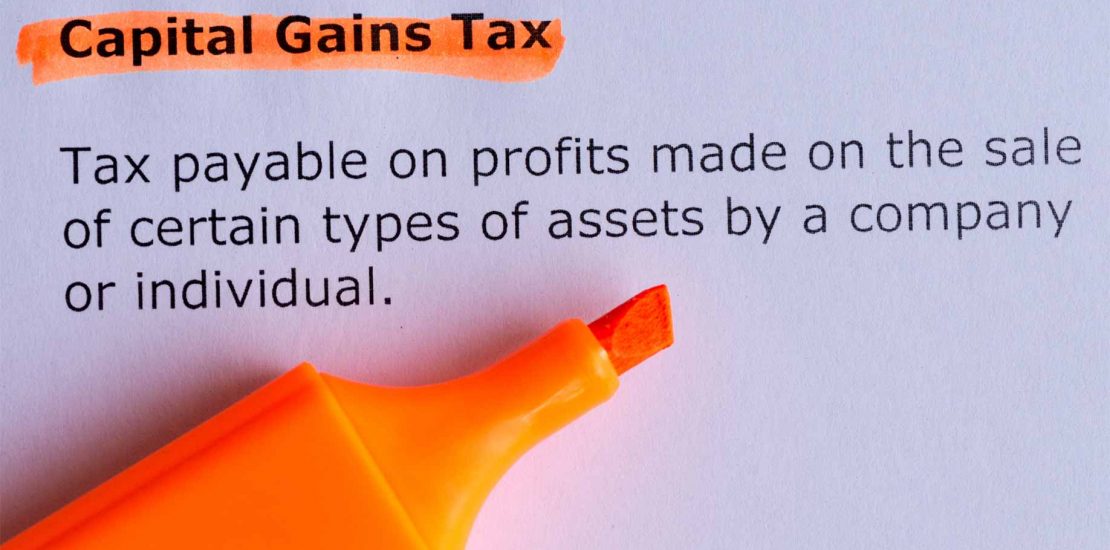10 ways to avoid capital gains tax
- October 23, 2018
- Posted by: admin
- Category: Business Growth, Contractors, Expenses, Finance & accounting, Investment, Property, Tax

dhkac;k;ls
1. Use the annual tax-free allowance
Capital Gains Tax (CGT) is charged on the profits made when certain assets are sold, or transferred.
You pay CGT on the gains made above your annual tax-free allowance, which this year is £11,700.
You should make sure you use your annual exemption as this cannot be carried forward or back into other tax years, so will be lost if not used.
2. Spread gains over tax years
Instead of selling, say, a whole heap of shares all in one go, you can split your sales over two or more tax years. For example, you could sell some shares in 2015/16 and then sell more on or after 6 April 2016. By doing so, you can take advantage of two years’ CGT allowances totalling £23,400.
3. Offset losses against gains
When calculating your CGT bill, you deduct capital losses from capital gains in order to arrive at your net gain. For example, a gain of £25,000 minus a loss of £10,000 produces a net gain of £15,000.
Therefore, by crystallising losses in the same tax year as gains, you can bring down your tax bill. Also, in most cases, losses made up to four years ago can be offset against current gains.
4. Gift assets to your spouse
Transfer between spouses is currently exempt from CGT. So by gifting assets to your spouse (or same-sex Civil Partner), you take advantage of both CGT tax-free allowances amounting to £23,400.
5. Bed your spouse
No saucy remarks, please!
Another way married couples and Civil Partners can avoid CGT is by one spouse selling assets to crystallise a gain, while the other spouse buys them back. This ‘bed and spouse’ technique to crystallise gains doesn’t work for outright gifts, as these do not attract CGT. Instead, one spouse must, say, sell shares to a broker while the other simultaneously buys them back from the same.
6. Get an ISA
Over 19 million Brits use a popular tax shelter known as an ISA (Individual Savings Account) to keep income and capital gains safe from the taxman’s grasp.
In this tax year, investors can put up to £20,000 into an ISA of which all can be in cash or stocks and shares, or a combination of the two.
Gains made inside an ISA are free from CGT, so an ISA is one of the best defences against paying needless tax. Over many years, some investors have built up six-figure sums inside ISAs, all protected from HM Revenue & Customs.
7. Bed and ISA
As with the ‘bed and spouse’ technique, ‘bed and ISA’ involves selling assets (such as shares, investment funds and bonds) to produce a capital gain and then immediately buying back the same assets inside the safety of an ISA.
Thus, you could sell directly held assets worth up to £20,000 and then use the proceeds of this sale to fund a near-identical purchase (after dealing charges) inside an ISA. This enables all future gains on this asset to avoid CGT.
8. Bed and SIPP
Another sell-and-buy-back technique is ‘bed and SIPP’ which involves – you guessed it – selling assets and then buying them back inside the shelter of a pension known as a Self-Invested Personal Pension (SIPP). All income and gains made inside a SIPP are tax-free, making it a very popular option for saving towards retirement.
9. Invest in small companies
By investing in special tax-efficient programmes which provide funding to small businesses, you can reclaim some – if not all – of the Income Tax and CGT you’ve previously paid.
These schemes, known as Venture Capital Trusts (VCTs) and Enterprise Investment Schemes (EISs) are usually extremely risky, so they are best left to experienced and wealthy investors.
10. Reduce taxable income
The rate of capital gains tax is charged based on the rate of income tax paid.
Therefore lowering taxable income in any one year could reduce the CGT rate from 20% to 10% or 28% to 18% if you are selling residential property.
Reducing taxable income can be done in a number of ways: waiting for retirement and a change from earnings to pension income; salary sacrifice through pension contributions or childcare vouchers, deferring the state pension or transferring taxable income bearing assets such as cash deposits to a lower earning spouse.
One final warning
Finally, while ‘tax avoidance’ is legal, ‘tax evasion’ is illegal. So don’t be tempted to sell assets without declaring any gains to HMRC. Defrauding the taxman could land you with a hefty fine and even a prison sentence!
